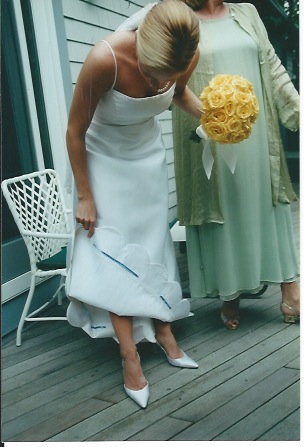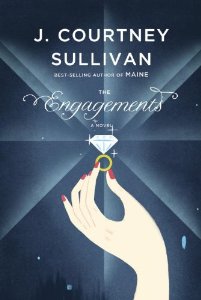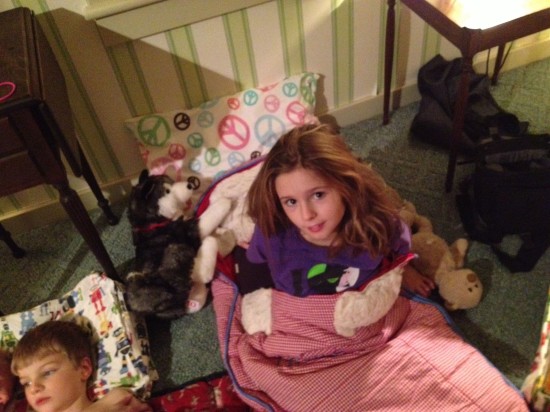Anyone who’s been reading here for a bit knows how passionately I loved Launa’s account of her family’s year in France, Wherever Launa Goes. Imagine my delight, then, when I received her book, which tells the story of what she discovered in her year away from home. I don’t think it’s giving anything away to say that what she found there was nothing less than herself. Home Away: A Year of Misapprehensions, Transformations, and Rose at Lunch is every bit as wonderful as I expected. Actually, it’s more wonderful. Because, you know, it’s a book.
I’m thrilled to offer a giveaway copy of this marvelous book to a reader. Just leave a comment and I will choose a winner on Sunday. Just as I loved Launa’s blog, I love this book. Launa’s voice is lyrical and funny at the same time, and she has achieved the holy grail of memoir, which is to take something deeply personal and make it powerfully universal. Home Away is, in the end, Launa’s love letter to her husband and daughters. Sometimes it takes going far away to realize the value of what is right in front of us. Some of the tenderest parts of Home Away, in opinion, could have happened anywhere on the globe: they are beautiful evocations of the relationship between husband and wife, between mother and daughter, between sisters.
I’m happy to share a short excerpt from Home Away: A Year of Misapprehensions, Transformations, and Rose at Lunch. It was extremely hard for me to choose what to post here, because I love so many passages from this book. Read it: I know you’ll love it too! And leave a comment here, and I’ll pick a winner on Sunday!!
from Home Away, chapter 1:
So, on a sunny day in June nearly two decades ago, my stability-craving heart pledged itself to Bill’s adventurous one. We made our promises in the firm grasp of a series of big ideas about about one another, the most important of which was that we were opposites who belonged together.
We promised all the usual have-and-hold, sickness-and-health, forsaking-all-others business, of course, but we added a few pledges of our own. Knowing our proclivity to want to do different things at the same time, we promised to live our lives in the same place(s). We foresaw the tortured negotiations it would require for us to decide whose job or school or flight of fancy would take precedence, and naively decided to take turns. In our marriage, nobody would compromise any more than anybody else.
We also decided that we would inspire one another to bigger and better contributions to the world. In retrospect, I have come to understand just how insane that particular vow must have sounded to the older-and-wiser married people witnessing our ceremony: “I promise not to make your life easy, but to make it meaningful,” we actually said aloud, beamingly pleased with ourselves and one another.
Another vow we wrote went something like this: “I promise to be married to you every day of our lives.” Through this promise, we would recognize each day as a choice, not the default, and thus never feel trapped, and never take our marriage for granted. We would grow and change together, creating in each day of our marriage yet another opportunity to say, “I do.” We chose a forever made of days.
And finally, we promised that someday, when we had children, we would live overseas, recapitulating the trip that launched a thousand stories. This last promise was entirely Bill’s idea, and I only agreed because the promise had the word “children” in it. The whole living overseas part I would deal with later. Much, much later, and only if he forced the issue.
Sometimes, with love, you hold a little something back without admitting it, even to yourself.
…..
“Bill, I’ve had it with this stability I keep clinging so hard to.”
“You and me both.” We had talked hundreds of times on this point, always in circles. He had no way of knowing what I was about to say.
“It just keeps not working like I thought it all would.”
“Yeah. Why is that?” He rolled towards me, and pulled me close.
“I don’t know. But I wanted to ask you something. Remember how we promised that someday we would live overseas? And then I kept pretending I hadn’t really promised that?”
“Yeah.” His voice was quiet, but I had his attention.
“A year from now, Abigail will be finishing first grade. She will know how to read and write. Grace will be finishing fourth grade, and not yet in middle school. The girls aren’t too young, and they’re not yet too old. I will have finished five years at my job, and the school will be in solid shape so I can pass it on to the next head of school with a good conscience.”
Even while busting out, I had to have a careful plan.
“Let’s quit our jobs, rent out our house, and go. I think it’s time.”
He looked at me as though I had just thrown him a winning lottery ticket. And a pony, and a beer.
His eyes widened, and then he pulled me close and squeezed me tight. “I knew if I waited long enough, someday you’d say that. I’ll take care of everything. You can trust me.”
I should have known just how fast and loose I was playing with the future by even whispering Bill’s sacred word: travel. Once he had the green light, his idea of taking care of things meant he would spring ahead, dragging the rest of us behind him like noisy tin cans bumping on the highway. With a new adventure to motivate him, he was suddenly filled with an enthusiasm that had escaped him in his every day life.
But here’s the thing: while I had only wanted to leave where I was, he was dying to go somewhere else, and those two impulses had surprisingly little in common. I wanted to step out of my life, but he wanted to be in Rome. Or Bulgaria. Australia came up. Northern Africa. Iceland. Mars.
Soon enough, and for only the flimsiest of reasons, his somewhere became southern France.
We moved for the experience of spending a year away from our two-kid, two-job, too-chaotic New York life, but we were still utterly divided about what we were searching for there. Would we find the adventure Bill had lost? Or the stability I so craved? Did we even know that each of our searches imperiled the other’s?
“Ships at a distance have every man’s wish on board,” Zora Neale Hurston began Their Eyes were Watching God. Our marriage vows had focused our eyes on one distant ship. When it floated into port, we discovered that neither of us could find quite what we had expected packed into the hold.
When we started planning our year in France, we gazed together at another distance ship. Our wishes would be on board that one, we were sure.
See? Isn’t Launa wonderful? Leave a comment here to win Home Away: A Year of Misapprehensions, Transformations, and Rose at Lunch.



